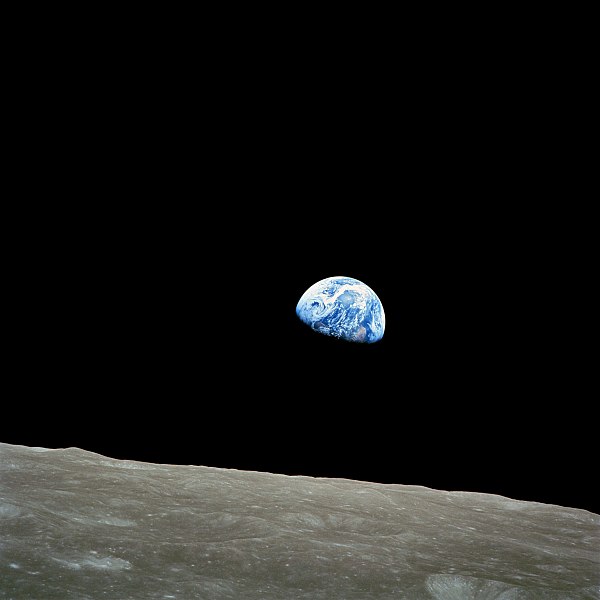Like this time every year, the blogosphere for the past couple of days has been full of the ‘review of the year’ type posts. So instead of simply adding to the list, here’s a few random personal thoughts at the end of 2018:
1. Tech continues to both inspire and terrify…
As the year closes, it’s almost become a cliché to warn about how dangerous Facebook has become; the sensitive data that Google is hoovering up about every area of your life; the scary dystopian surveillance that has become normality in countries such as China; and the security breaches across pretty much every sector of the modern online world. And yet these issues not only continue to occur, in 2018 they have become far worse than ever before.
This year it seems like the cracks were starting to show above ground level for the first time and we’re collectively becoming more aware of the reality that lies beneath all of that sexy UX layered across apps and services. The challenge of finding out who you can trust is only becoming more acute.
Unfortunately, this isn’t a simple task to solve and one that will take a combination of technical expertise and collective will to change everyone’s behaviour. The best time for us to make these changes was a long time ago. The second best time is today.
2. Ankles are more important than you realise…
Running is my sport of choice – for fitness but also for the discipline and mental clarity that it provides that I’ve never found in any other pursuit. But this year was the first I’ve properly knackered myself doing it… I’ve been incredibly lucky to avoid bad injuries over the last 20 years or so but that all came to an end as I did my best impression of Kilian Journet running fast down some Highland Hills in June. Unfortunately it translated into something more akin to Madonna at the Brits…
Cue 3.5 months of minimal walking, intense physio, strong pain relief, more ice than Lake Baikal – and zero running. Needless to say, it wasn’t a great year for fitness… ticking over, but no improvements.
3. Rediscovering how much fun speaking can be…
I gave loads of talks this year at conferences and events – in Manchester University, Edinburgh Uni, Aberdeen Uni, Strathclyde Uni, Glasgow Uni (theme developing here…) to various meetups and the obvious standout, a talk in Maratea, Southern Italy at the Hero’s Festival (which wins the prize for the hottest place I’ve ever given a talk at by a very long way…). On top of that I’ve given about 6 or so podcast interviews (that I can remember) which has been a new experience, plus heading into the studios to speak on BBC Radio Scotland. Once again, I’m reminded just how amazing this crypto journey has been over the past 5 years or so in terms of the conversations that I’ve been part of and the fascinating people that I’ve met – initially whilst speaking Bitcoin and now with the focus on the SAFE Network.
However if I was to pick my two favourite talks they would be the inaugural address to the Adam Smith Gala in Glasgow (the second of two different talks I gave during one particularly busy Saturday) and the out-of-the-blue keynote I was asked to give at a local secondary school awards ceremony at short notice. All in all, huge amounts of work went into each and every one of these things (talks are probably the only area in life that I consistently overprepare for) but, almost without exception, they were hugely satisfying.
4. Reading still rules…
It was another huge year for reading. As with last year, this was my number one goal – bar none – and I consistently carved out time to work at learning more about all manner of things. I’m even more convinced than ever of the value that lies in paper books as opposed to electronic screens where Twitter or (worse) the news constantly lie temptingly within reach. I’ve uncovered vast new continents of undiscovered knowledge around topics I previously knew close to nothing about that I now can’t wait to return to. I finished 56 books this year (including a few c. 1,000 page monsters) – in a future post, I’ll summarise the cream of the crop on my opinion.
5. Goals and Targets
The other big thing for me this year using the BestSelf journal system. There’s plenty to it as it combines lots of different approaches to goal setting and planning. But in summary, it comes down to identifying three key major goals, working on a plan/review each day and then carrying out a weekly review of things. If you click on that link you can download the pdf without buying the book to give it a go. But in practice, there’s no doubt that it helped me do a number of things more effectively this year – writing, cooking, reading a minimum of 1 book a week and relearning the piano after 25+ years off, to name just a few. After using it for six months, there’s no doubt in my mind that the process is worth the effort.
If nothing else, if you haven’t taken any moves towards something that you class as a major goal in life, you end up reminding yourself at the end of every week that either (1) you’re delusional about how important it actually is to you or (2) you’re useless and wasting your time elsewhere. So you have to take action either way.
That’s it for the most immediate things I can remember learning in 2018. Let’s see what lessons 2019 brings!

